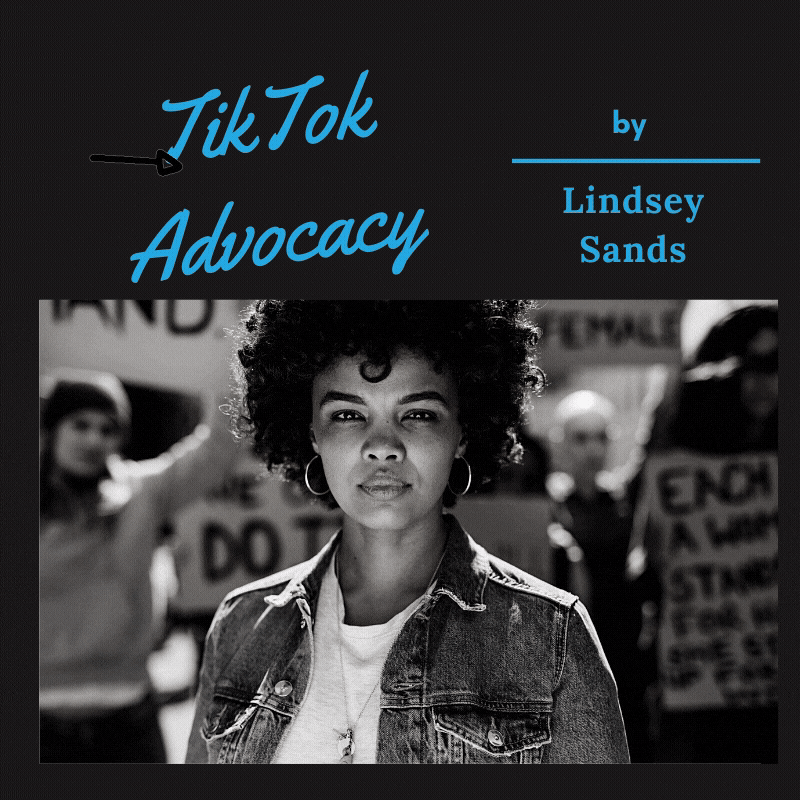
By Lindsey Sands
IG: lindseyburnerofthebread
I’m sure that even if you aren’t a user, you’ve heard of TikTok. In 2018, TikTok became the most downloaded app in the Apple App Store. Only allowing videos less than 60 seconds, it has captured the eyes and ears of millions, including myself. On the surface, it’s a platform for dancing and lip-syncing along to familiar songs, but in my time, I discovered a different face of the app. Social Activist TikTok.
Content creators on Social Activist TikTok have built platforms by speaking on social issues that impact communities they care about. These accounts are dedicated to educating viewers on topics such as racism and prejudice, homophobia, transphobia, and ableism.
A common problem on TikTok is what users call “shadow ban.” Creators report less and less views and removal of likes on videos that mention sensitive or controversial topics, an attempt to censor free speech on the app.
Despite these efforts to censor content, users of the app, especially those on the social activist side, are able to spread information very quickly. Beginning with his event in Tulsa, Oklahoma, TikTok users reserved thousands of tickets to President Trump’s election rallies, leaving the majority of the seats empty. The low turnout was the joke of the week, and the US president was on the receiving end. And less than three weeks later, Trump announced that TikTok may be banned in the United States due to the Chinese spyware supposedly built into it. Coincidence?
In other news, with the recent resurgence of the Black Lives Matter movement, a lot of activist creators, whose focuses weren’t already centered around people of color, have begun to highlight the intersectional struggles of Black, Indigenous, people of color (BIPOC) communities. Although they intend to spread messages of positive change, creators are not exempt from backlash.
More recently, popular TikTokker Claira Janover has been trending on Twitter because of her recent controversy. She uploaded a TikTok that made an analogy of how the All Lives Matter movement is detrimental to the Black Lives Matter movement. In the video, she proposed a hypothetical scenario in which she stabs, yes, stabs someone for saying All Lives Matter then presents her paper cut and states “[Her] cut matters, too.” Despite her comment on the video saying, “For legal reasons this is a joke,” verified Twitter user tweeted the TikTok in hopes of a negative response.
A lot of the politically right-wing viewers of the tweet took Janover’s words to heart and proceeded to send her all types of hate massages. They dubbed her a “homicidal Asian” and lobbied for her punishment, demanding that Harvard expel her and Deloitte, a consultant company, fire her from her summer internship and rescind the job offer they gave her, and Deloitte complied. When Janover received Deloitte’s statement, she uploaded videos in tears.
On the other hand, many TikTok activists took Janover’s side. Petitions popped up and popular creators such as Jackie James (@fatraco0n) and Caleb King (@alaskan.boii) made videos defending Janover, asking Deloitte to give her job back and for people to stop sending hate over the misunderstanding.
Janover’s story blew up, but hers is not the only one. With the increased popularization of TikTok has come the ominous “cancel culture.” The more fans people accumulate, the more viewers start digging into their pasts. And this is not TikTok exclusive. Famous creators on all platforms are scrutinized under a bright light, so it is up to the fans and followers to decide who they support.
